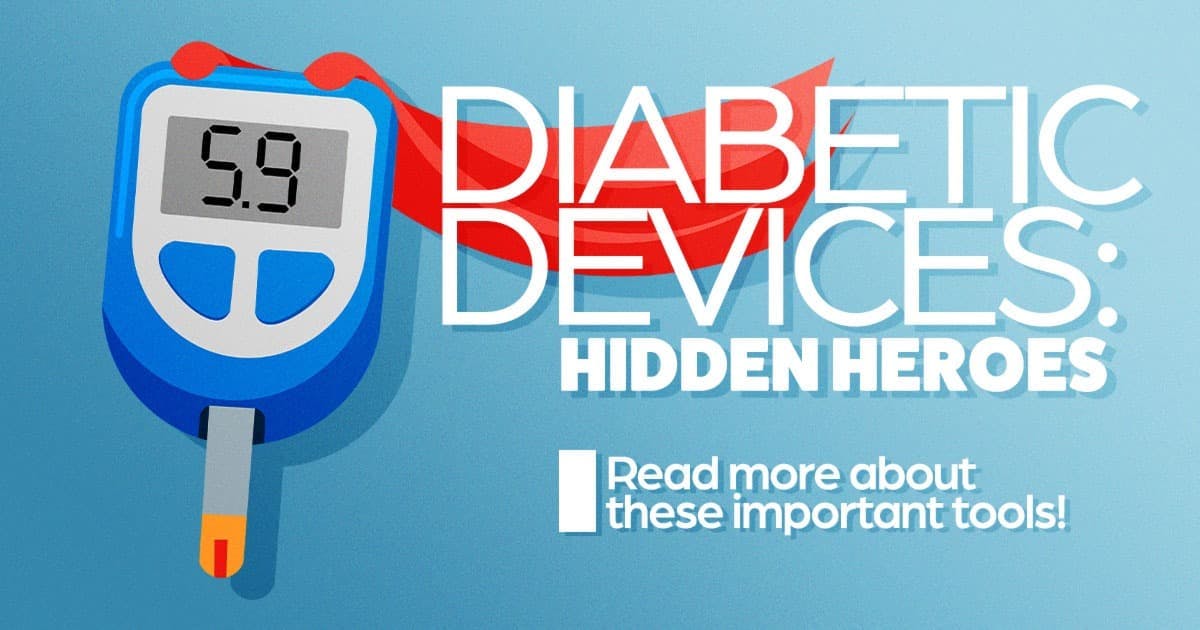
Diabetic Devices: Hidden Heroes
Controlling your blood sugar is a vital component for overall health when you have diabetes. Luckily, there are diabetic devices that can help you stay on track when it comes to managing your condition. From delivering insulin to glucose monitoring, advancements in technology continue to make options that are more straightforward and less invasive. They are the hidden heroes of the diabetic community.
Blood Glucose Monitoring
Blood glucose meters (BGMs) measure blood sugar levels at the specific moment of checking. The two main types either use a drop of blood or check it regularly day or night through a continuous glucose monitoring system.
-
Blood glucose meter:
- Uses lancets to prick a finger for a blood sample. Test strips are inserted into the meter and use a sample to measure current blood sugar levels.
- Most nowadays connect to a smartphone app.
- Different types can use smaller blood samples taken from the arm, etc.
-
Continuous blood glucose meter:
- Typically record a reading every 5 minutes.
- Works through a sensor placed on the skin and sends readings to a receiver in a smartphone app.
- Fewer finger pricks
- Can connect with some insulin pumps and send an alarm when levels are out of range.
Insulin Delivery
Supplemental insulin use helps prevent your blood sugar levels from getting too high. They come in several types, such as fast-acting, long-acting, and others in between. Each type differs in how long they take to work when they reach maximum strength and the duration they last. They also vary in delivery methods:
- Syringe- Draws the insulin out of a bottle.
- Pen- Is pre-filled or uses an insertable cartridge.
- Pump- The pump attaches to a waistband, sock, or underwear. It connects to a catheter that goes under the skin. It continuously delivers slow or fast-acting insulin on a pre-programmed schedule.
The Bright Future of Diabetic Devices
Exciting developments are on the horizon for diabetes patients as we continue integrating technology with our medical devices. Remote insulin dosing and improving closed-loop pump options are just the beginning. Other initiatives are making devices and accessories smaller, lighter, less invasive, and more user-friendly. Clinical research studies provide the pathway that brings these potential advancements closer to the patients that need them.
If you'd like to help advance the future of diabetes care, consider becoming a clinical research participant. To learn more about enrolling diabetes studies here at Diabetes & Glandular Disease Clinic, call (210) 614-8612, or visit our website.
References:
https://www.diabetes.org/healthy-living/devices-technology
https://diatribe.org/diabetes-devices
https://www.webmd.com/diabetes/what-diabetes-supplies-will-i-need
Participate in Clinical Research
Enroll in a study to learn more about your condition, gain access to new treatments, and help advance medical research!
Enrolling Studies